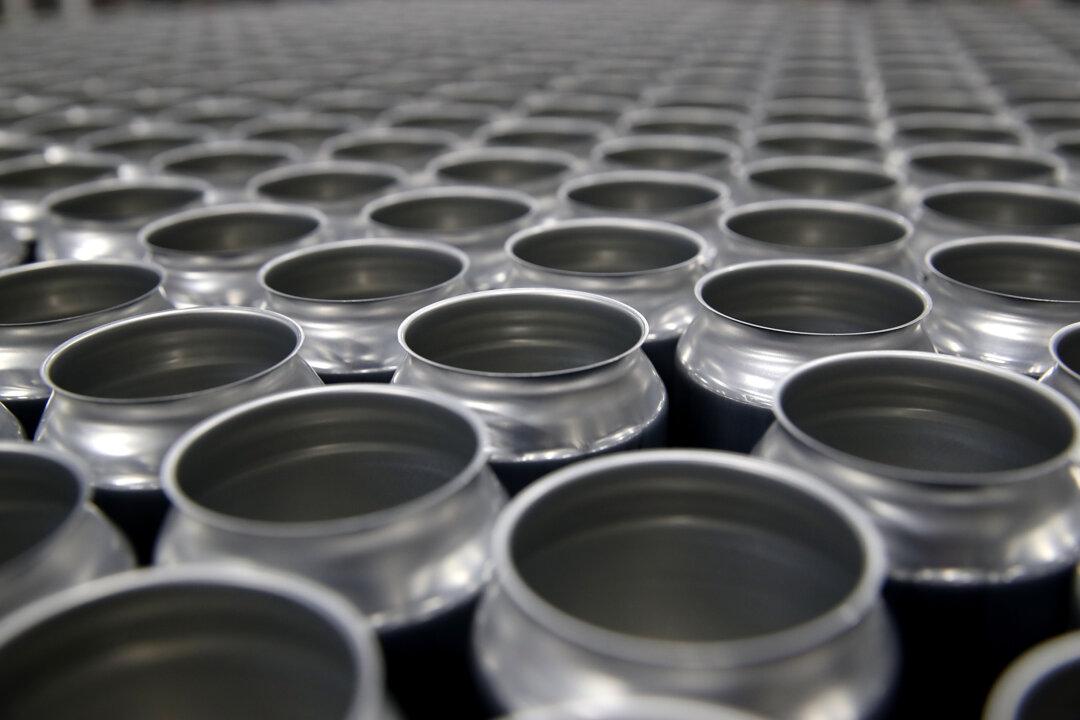Canada’s swift retaliation against U.S. tariffs on aluminum imports shows it is willing to stand up to a much bigger country.
However, Ottawa’s reaction toward its most important ally raises the question as to why it doesn’t do at least the same, if not more, against Beijing—clearly a hostile regime that has done far worse than slapping tariffs on aluminum.
Brian Lee Crowley says the reason is fear.
“Our representatives are literally terrified of doing anything that might displease China,” Crowley, the managing director of the Macdonald-Laurier Institute, told The Epoch Times.
Deputy Prime Minister Chrystia Freeland called it “unwarranted and unacceptable” to levy the tariffs over national security concerns. Canada and its aluminum producers have denied allegations that they flooded the U.S. market with aluminum.
The feds will hit back with $3.6 billion in tariffs to match dollar-for-dollar the impact of the U.S. tariffs, which start on Aug. 16. Freeland said the goal is to have the strongest possible impact on the United States with the retaliatory tariffs.
But Crowley says Canadians would do well to reflect on why their government feels it can go head-to-head with its largest trading partner, with whom it has far more at stake than it does with China.
He says Ottawa thinks it’s safe to push back against the United States since it knows there are limits on what will be returned, but it’s a different story with China. “We have no confidence that China will not go well beyond what was justified, [knowing] that they are completely unrestrained by the law, by tradition, by the standards of the international community.”
Beijing has arbitrarily detained Canadians Michael Kovrig and Michael Spavor for two years now and has sentenced four Canadians to death, in moves widely viewed as retaliation for the arrest of Huawei executive Meng Wanzhou in December 2018. In addition, the communist regime has blocked canola shipments by two Canadian exporters since March 2019, and other exports such as pork and soybeans also faced restrictions.
That doesn’t include Beijing’s antagonistic moves like coercion and influence operations in Canada. These operations aim to silence criticism of the regime and have Canadian politicians and business leaders adopt more favorable stances toward its ambitions, such as installing Huawei 5G equipment in national telecommunications networks.
Proper Perspective
Crowley says Canada needs to keep its relationships with the United States and China in proper perspective. What Canada sells to China is a small fraction of what it sells south of the border.
Canada is part of an integrated North American economy that’s largely driven by the United States. Thus, adeptly managing the relationship with Washington is the single most important job for Ottawa, Crowley says.
“Ottawa has to be, in effect, the voice that speaks for us as if we were represented in Congress to protect our economic interest,” he said.
David Mulroney, a former Canadian ambassador to China, wrote on Twitter that Prime Minister Justin Trudeau and Freeland “show as much contempt for POTUS [U.S. President Donald Trump] as they can get away with.”
Trudeau and Freeland are counting on U.S. voters to “solve their ‘foreign policy’ problem in D.C.,” he wrote.
Mulroney contrasted this tack with the one adopted toward China, where he said there is no similar solution available to deal with Beijing.
“But with China, a real menace, it’s flattery, silence or the weakest criticism they can get away with,” he wrote.
“The reality is that Canada has what China needs,” Mulroney told the parliamentary Special Committee Canada-China Relations on Aug. 6. China’s environmental destruction has damaged a lot of its productive capacity and Beijing is hungry for agricultural products and natural resources—Canada’s forte.





